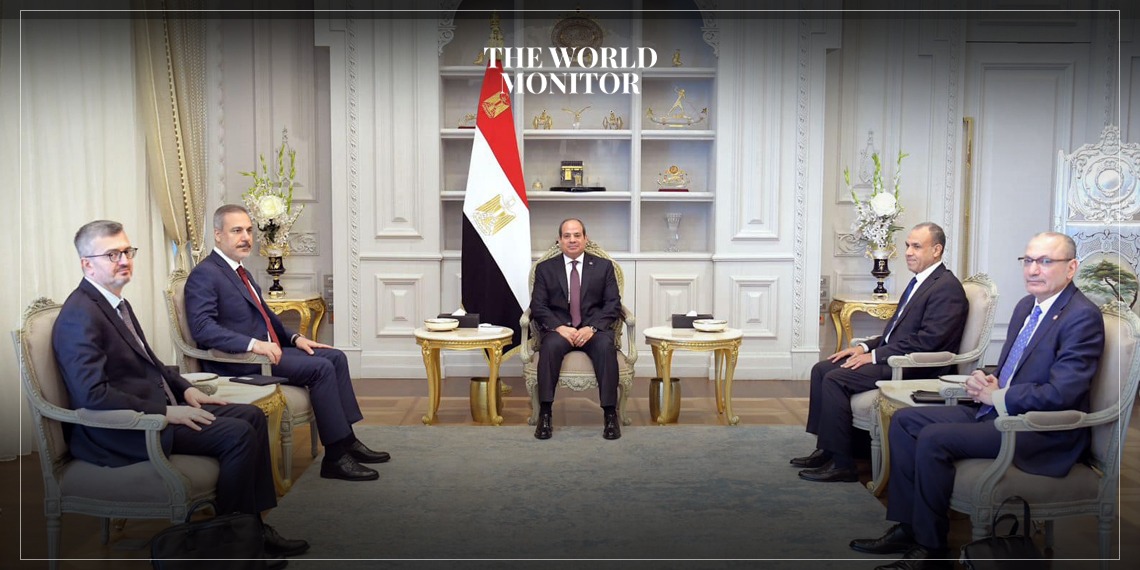President Abdel Fattah el-Sisi stressed that the Middle East is at a “highly precise and dangerous juncture,” necessitating utmost restraint and the promotion of reason and wisdom.
During a meeting in Cairo with Turkish Foreign Minister Hakan Fidan, President Sisi expressed that defusing the escalating tensions lies in the concerted efforts of influential powers and the international community to immediately enforce a ceasefire in Gaza, thereby allowing for political and diplomatic solutions.
He reiterated Egypt’s repeated warnings about the dangers of an expanding war scope, which threatens regional and international peace, security, and the well-being and stability of the people in the region.
President Sisi emphasized that regional developments should not overshadow efforts to deliver aid to the Palestinian people in Gaza, who are experiencing inhumane living and health conditions and a lack of basic life necessities.
The meeting underscored the need to push for a comprehensive and radical solution to the Palestinian issue based on the two-state solution, envisaging a Palestinian state with East Jerusalem as its capital along the 1967 lines, to achieve justice, security, and lasting stability in the region.
A presidential statement reflected consensus on the severity of the regional scene and condemned Israeli escalation policies.
President Sisi also praised his Turkish counterpart, Recep Tayyip Erdogan’s visit to Cairo in February, which marked a positive start in bilateral relations.
In a separate meeting, Egyptian Foreign Minister Badr Abdelatty and his Turkish counterpart discussed regional developments, especially the humanitarian situation, affirming that “our message to the world is to work towards stopping the war in Gaza.”
Furthermore, President Sisi emphasized the importance of completing the implementation of the national strategy for human rights and ensuring that citizens enjoy their constitutional rights.
An Egyptian high-level source denied Israeli media claims about the existence of active tunnels between Egypt and Gaza, dismissing them as an Israeli escape from failure in the sector.
The source accused Israel of propagating tunnel claims to justify its ongoing aggression in Gaza and overlooking weapon smuggling into the West Bank as a pretext for land seizure and further violence against Palestinians.
The source highlighted that Israel had provided no evidence of active tunnels at the border and was exploiting closed tunnels in Gaza for political ends.






